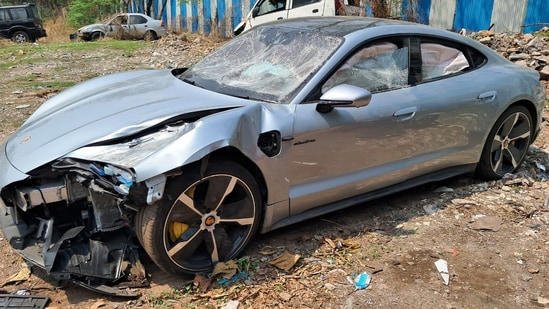A recent Porsche accident in Pune has sparked controversy and raised questions about the treatment of the accused teenager, as claims of preferential treatment and shocking bail conditions emerge. The incident, which resulted in the death of a pedestrian, has drawn scrutiny from various quarters, with politicians, activists, and the public expressing concerns about accountability, justice, and fairness in the legal system.
The accident occurred when a speeding Porsche SUV, allegedly driven by a teenager, crashed into a group of pedestrians in Pune, resulting in the death of one person and injuries to several others. The tragic incident sent shockwaves through the community, prompting calls for swift action to ensure that those responsible are held accountable for their actions.
However, the handling of the case has come under scrutiny, with allegations of preferential treatment and leniency towards the accused teenager. According to reports, the teenager was initially detained by the police but later released on bail under what many have described as unusually lenient conditions.
The controversy deepened when it was revealed that the teenager, while in custody, was allegedly served “pizzas” and provided with amenities not typically afforded to detainees. These claims have sparked outrage, with critics accusing the authorities of extending special privileges to the accused based on their social status or connections.
The Congress party was quick to seize on the controversy, with party leaders condemning the alleged preferential treatment afforded to the teenager. They called for a thorough investigation into the matter and demanded accountability from the authorities responsible for overseeing the case.
Former Maharashtra Chief Minister Devendra Fadnavis also weighed in on the issue, expressing shock at the bail conditions granted to the teenager. He described the conditions as “shocking” and called for a review of the decision to ensure that justice is served and the interests of the victims and their families are upheld.
The case has reignited debates about the efficacy and fairness of the legal system, particularly in cases involving individuals from privileged backgrounds. Critics argue that the perceived leniency towards the accused teenager highlights systemic inequalities and disparities in the administration of justice, where individuals with wealth or influence are often treated more favorably than others.
In response to the allegations, the authorities have defended their handling of the case, insisting that all legal procedures were followed and that the teenager was treated in accordance with established protocols. They have sought to reassure the public that the investigation into the accident is ongoing and that the interests of justice will be served.
However, the controversy surrounding the Porsche accident underscores broader concerns about road safety and accountability in India. According to data from the National Crime Records Bureau, road accidents are a leading cause of death and injury in the country, claiming thousands of lives each year and causing immense suffering to victims and their families.
Efforts to improve road safety and hold reckless drivers accountable for their actions have been hampered by various challenges, including inadequate enforcement of traffic laws, lax penalties for traffic violations, and limited access to justice for victims of road accidents.
In light of the Porsche accident and the ensuing controversy, there have been renewed calls for systemic reforms to address these challenges and ensure that the legal system delivers justice in a fair and impartial manner. This includes strengthening road safety measures, enhancing accountability for traffic violations, and addressing disparities in the administration of justice.
Ultimately, the Porsche accident in Pune serves as a sobering reminder of the human cost of road accidents and the need for comprehensive reforms to improve road safety and ensure accountability for those responsible. As the investigation into the incident continues, it is imperative that the authorities uphold the principles of justice, fairness, and equality before the law, regardless of the social status or background of the individuals involved.

